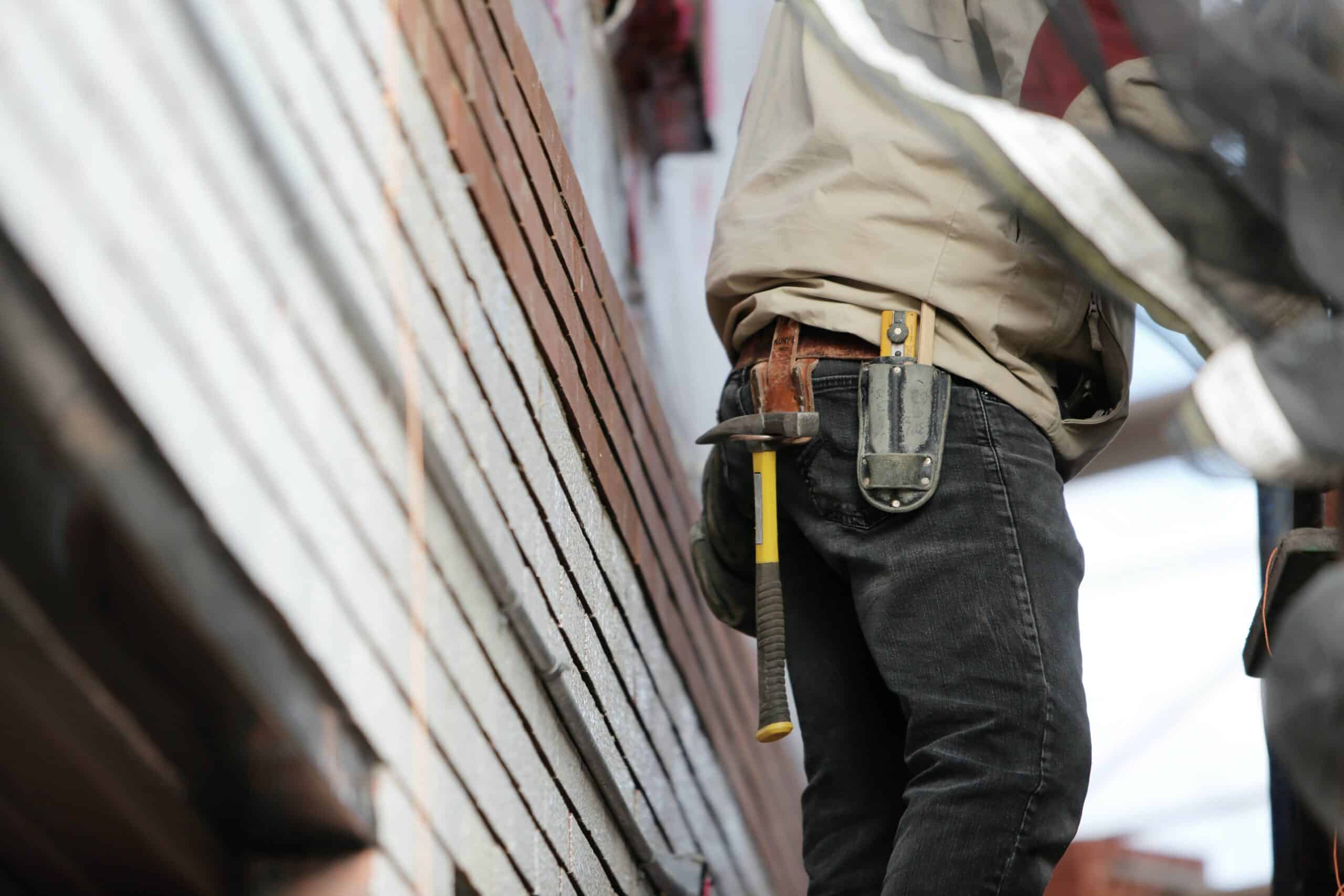We all need the help of a handyman from time to time, but when looking at a significant investment like building a new home, is a handyman-type individual the best choice? If you’re concerned about picking the right home builder for your new home, consider seven key differences between a handyman builder and a home builder company.
1. Your Handyman Might Not Be Licensed or Legally Operating
Every state requires certain licensing credentials for any types of contractors, including handymen. Licensing gives you peace of mind; it also gives the handyman credentials and proof of legitimacy. However, even though a licensed handyman is better than an unlicensed handyman, licensing isn’t the end-all, be-all of legal and desirable requirements.
Every contractor must adhere to strict regulations on everything from insurance protection to the set-up of client job bids and contractual agreements. Many handymen are unaware of these rules, which can put both them and you at risk.
A true home building entity that creates residential properties as part of its mission should have a complete awareness of its legal and ethical responsibilities to customers. Most homeowners find this a relief, which leads to stress reduction.
2. A Handyman Uses More Subs, and You May Not Trust Them
No handyman can do it all, from the excavating to the electric to the plumbing. Therefore, he will hire subcontractors, or ask you to hire subcontractors. In the former situation, you will want to meet and vet each subcontractor, putting more pressure on you to conduct due diligence on their authenticity and knowledge. In the latter situation, you will need to find subcontractors on your own, which can be a time-consuming, costly, and frustrating experience.
On the flip side, professional home builders typically use far fewer subs, because they hire experts full-time. When they do need an electrician, plumber, or specially licensed tradesperson, they have individuals on-call whom they trust. These are subs they have worked with dozens, if not hundreds or even thousands, of times before. You get the benefit of an exceptional product without the need to do any legwork.
3. A Handyman Is Not a Home Designer
Home building companies offer you the opportunity to design your home with them, which makes them a popular option among families who want a dream home. You will sit down with the home builder’s design team and consider choices from materials to square footage to landscaping.
When you work with a handyman, you will need to bring an architect or designer to the table. This puts the onus on you to find someone to masterfully engineer your perfect home, and then deliver the specifications for your handyman to interpret and build. As you can imagine, this process can lead to serious communication errors.
4. Your Handyman May Not Offer Full-Time Oversight
You want – and should expect – someone to oversee the building of your new home. But your handyman could be working part-time, or stretched too thin, to stay on top of site supervision. Consequently, problems might linger for weeks, leading to issues down the road.
A home builder plans on having a point person for your home, who is someone you can count on to have a complete understanding of all details. He or she will manage the timeline, too, giving you progress updates and stepping in when questions arise.
5. A Handyman Does Not Always Have Access to Top Technology or Equipment
As with every industry, the home building field has made incredible improvements thanks to world-class technology and related systems. In fact, home builders have access to fascinating, streamlined platforms and software that allow them to seamlessly engineer dream houses and manage the build from start to finish. In addition, home builders invest in the best equipment, even if it has a premium price tag, to maximize outcomes.
Because handymen are limited by the size of their companies, they may not have the ability or means to delve into all the technological marvels available in the construction world. Similarly, they and their multitude of subcontractors could find it challenging to gain access to excellent, new tools.
6. A Handyman Probably Hasn’t “Seen It All”
Ask any home builder if he has seen every surprise possible, and he will probably laugh and say, “Of course!” Home builders who have been in business a long time have truly experienced everything under the sun. From unexpected foundation problems to municipality hold-outs, home builders are well-versed in what can go wrong and capable of dealing with it when it happens.
Your handyman builder might have dealt with a few problems in the past, but not nearly the scope of concerns that a home builder would have encountered. This means any issues that creep up will require a steeper learning curve, not to mention take away precious time from the construction.
7. A Handyman Will Not Have a Legacy of Testimonials and Beautiful Homes
Can a handyman build dozens of homes every year? No. It’s simply not feasible. However, a true home builder can produce significant numbers of residences between January 1st and December 31st. (check out our customer testimonials)
If you are looking for a home builder with a legacy and reputation, you’ll want to go with a professional company.
At the end of the day, it’s up to you to decide which type of individual or organization will work on the construction and completion of your new home. Leaning toward hiring a handyman? Contact a long-standing home builder in your area for comparisons. You might be surprised to find out that the cost differential is far less than you expected, and the timeline is far superior.











